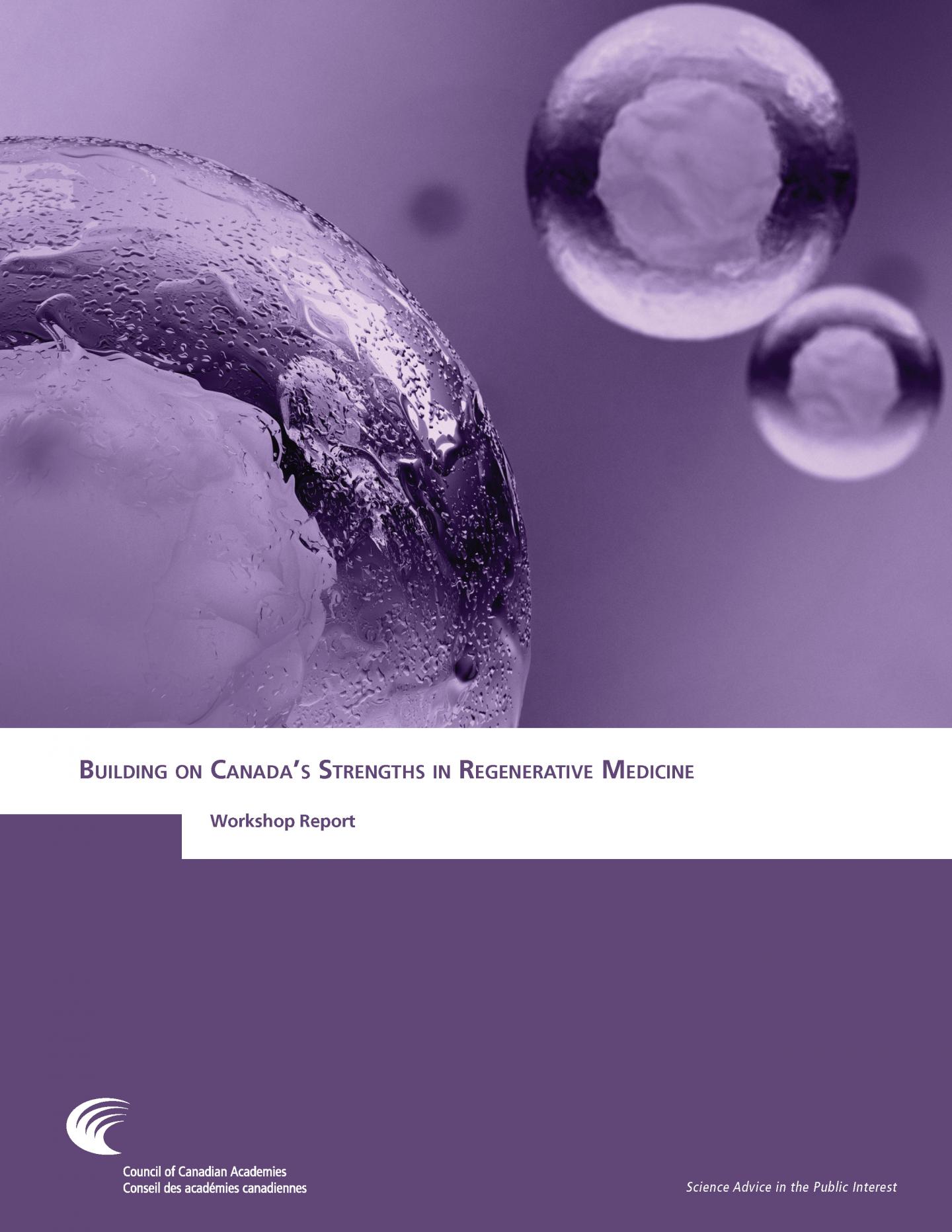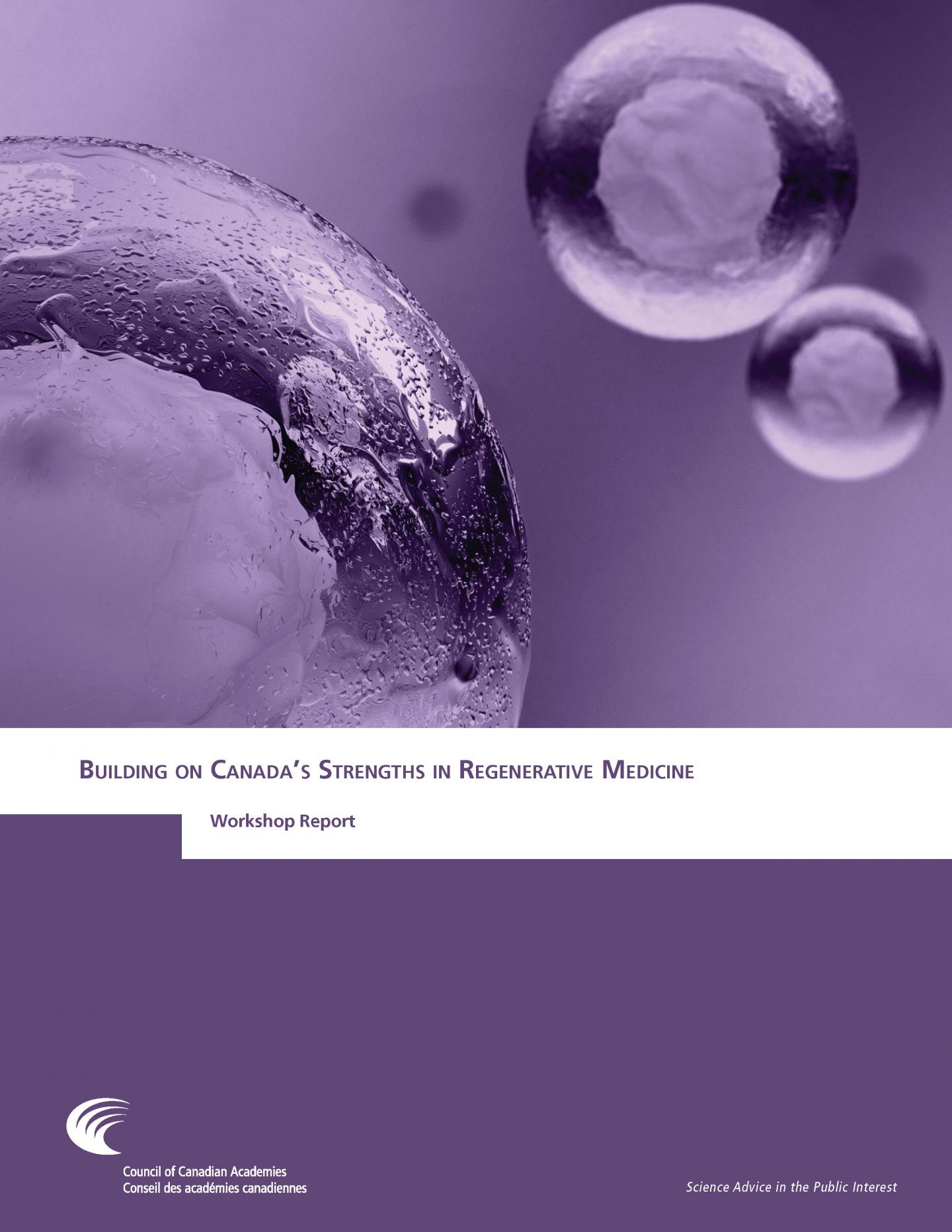
Credit: Council of Canadian Academies
A new workshop report, Building on Canada's Strengths in Regenerative Medicine, released today by the Council of Canadian Academies (CCA), confirms that Canadian researchers continue to be recognized as scientific leaders in the field of regenerative medicine and stem cell science.
"Overall, the evidence shows that Canadian research in regenerative medicine continues to be strong," said Dr. Janet Rossant, FRSC, Chair of the Workshop Steering Committee and President and Scientific Director of the Gairdner Foundation. "While Canadian research is both of high quality and highly cited, it is our collaborative culture, enhanced by our national networks that keeps Canada leading in this field."
Since the discovery of stem cells in the early 1960s by Canadian scientists Drs. James Till and Ernest McCulloch, significant advancements in regenerative medicine have followed, many by Canadian researchers and practitioners. The appeal of regenerative medicine lies in its curative approach. It replaces or regenerates human cells, tissues, or organs to restore or establish normal function using stem cells. A well-known example of regenerative medicine is the use of bone marrow transplants for leukemia. Although Canada has been historically strong in the field of regenerative medicine, experts caution that we must not lose momentum.
"Canada has been a leader in the field of regenerative medicine for decades, but maintaining this excellence requires ongoing efforts including continued stable and strategic investment in researchers, collaborative networks, and infrastructure," Dr. Rossant notes. "Several countries are investing heavily in regenerative medicine and stem cell science. Canada has a real opportunity to stay ahead of the curve and remain at the forefront of this field, but it will require us to harness key opportunities now."
The workshop report identifies several opportunities to strengthen the regenerative medicine community in Canada. Opportunities identified as particularly promising focus on:
- * formalizing the coordination among regenerative medicine initiatives and key players to speak with one voice on common priorities;
* establishing long-term and stable support for current networks, including those focused on commercialization, to help address the so-called "valley of death" that exists when translating research discoveries to clinical and industry settings;
* enhancing coordination and alignment between the federal regulatory system and provincial healthcare systems; and
* supporting existing manufacturing infrastructure and growing the regenerative medicine industry in Canada to provide jobs for highly-skilled personnel while also benefiting the Canadian economy.
The workshop participants also considered several specific opportunities such as:
- * enhancing coordination of Canada's regenerative medicine clinical trial sites to enable sharing of best practices related to funding, design, and recruitment;
* continued support for cross-training programs to ensure future generations of Canadian researchers have wide-ranging skills suited to the multidisciplinary nature of regenerative medicine;
* new incentives that encourage partnerships between research institutions and industry; and
* increasing efforts related to public engagement and outreach.
"Sometimes becoming excellent is easier than maintaining excellence," said Dr. Eric M. Meslin, FCAHS, President and CEO of the Council of Canadian Academies. "This is why taking stock of Canada's place in the regenerative medicine landscape at a point in time is important, especially where the science is moving quickly; it helps those in the field understand the opportunities and will contribute to the ongoing policy discussion in Canada."
###
For more information or to download a copy of the workshop report, visit the Council of Canadian Academies' website, http://www.scienceadvice.ca.
Media Contact
Samantha Rae Ayoub
[email protected]
613-567-5000 x256
@Scienceadvice
http://www.scienceadvice.ca
############
Story Source: Materials provided by Scienmag





